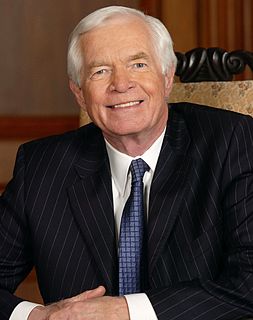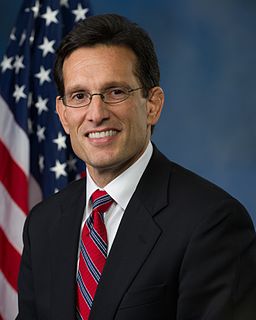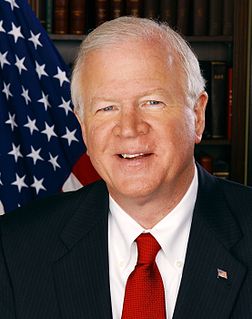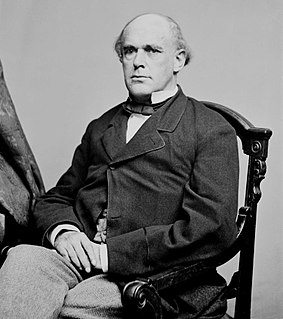A Quote by George Mason
The [President's] Nomination, of Course, brings the Subject fully under the Consideration of the Senate; who have then a Right to decide upon its Propriety or Impropriety.
Quote Topics
Related Quotes
That Republicans now control the Senate means, of course, that they control the confirmation process. Their majority enables them to stop an unacceptable nomination at various points: They can deny the nominee a committee hearing; they can vote the person down in committee; they can refuse to schedule a vote on a nomination sent to the floor; and the full Senate can vote to reject the nomination. The Republicans' majority status also strengthens their negotiating position with the White House, making it more likely that a mutually acceptable candidate will be chosen for a given seat.
President Bush, whose scorn for journalists is balanced by a soft spot in his heart for the conglomerates they work for, threatens to veto the Senate action. Keep in mind that when the public was asked to submit comments to the FCC about consolidation, only one percent approved it. The President may not be listening, but the Senate is, and the public won this round. The House has a similar resolution under consideration.
Assuming that two-thirds of the Senate will not vote to remove the president, what is the alternative? I think we need to explore that in debate... Some have suggested censure. I think it is certainly a possibility that the Senate will decide on some alternative to removing the president from office.
To do a portrait today, I decide how close I can get to my subject. First, of course, mentally or intellectually, then in the viewfinder. Music cues the subject and me when to shoot. The music played during a photography session is most important - stimulating to the subject and to me. As in a film, the music builds or becomes quiet, romantic; just one note sets the actor up to emote for his audience. I want a reciprocal portrait, not a bureaucratic one
But might not his [the president's] nomination be overruled? I grant it might, yet this could only be to make place for another nomination by himself. The person ultimately appointed must be object of his preference, though perhaps not in the first degree. It is also not very probable that his nomination would often be overruled.











































